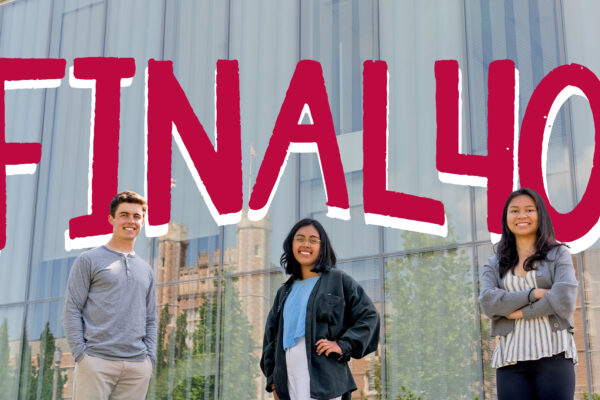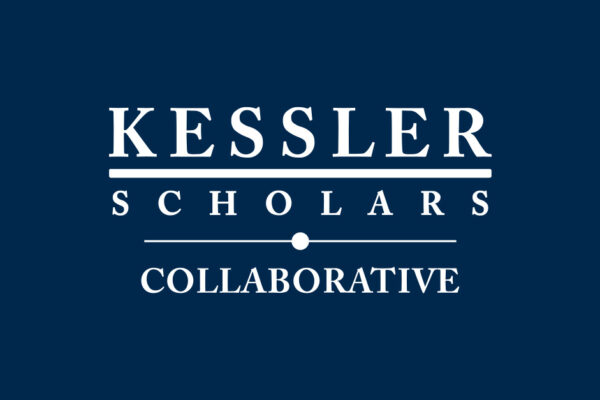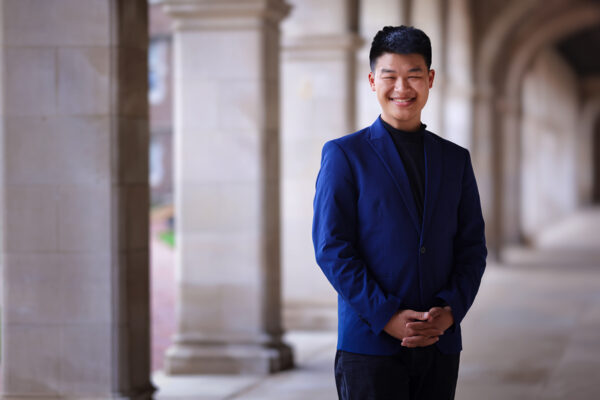At the end of high school, twins Akhil and Rohith Kesaraju were ready to go their own ways.
“We did basically everything together growing up,” Akhil said.
“At home it was always just us two, we didn’t have other siblings. For college, we initially both wanted to go different places and do different things,” Rohith added.
After both were selected as Annika Rodriguez Scholarship finalists, they attended scholarship weekend at Washington University in St. Louis, and everything changed.
“We were both enamored with WashU, amazed not only with the campus, but with the people,” Rohith said. “It seemed like everyone we met was doing the things we wanted to do.”
Now, in their senior year, the Kesaraju twins have grown both apart and together on parallel paths of service and research.
Raised in Lexington, Ky., the twin first became involved in community engagement as youth group co-presidents of the Bluegrass Indo-American Civic Society, raising money for scholarships and organizing a free health fair.
“A lot of South Asians, our parents included, immigrated in the early ’90s looking for opportunities,” Akhil said. “They did well and wanted to give back. This rubbed off on us.”
This was also when they became interested in medicine.
“Growing up, there was a certain mystery to what a doctor does, and I was always envious of the knowledge physicians have,” Akhil said. “It’s a profession where you can really make an impact.”
Both brothers have pursued pre-med degrees in Arts & Sciences with different specializations — microbiology and anthropology for Akhil and neuroscience and urban studies for Rohith. As part of their studies, they both participated in extended research projects, always with an eye on health applications.
Akhil, for instance, has spent the last three years in a lab studying infections and health implications of certain microbes. Most recently, he studied the health effects of dairy cows on farm workers. Meanwhile, Rohith studied the effects of Fentanyl on the central respiratory system of rats.
“We had to sequence the DNA of a lot of manure microbes,” Akhil said of his research.
“I would argue that working with rats actively pooping on you is probably worse,” countered Rohith.
Akhil and Rohith both have leveraged their educations and research experience to serve the St. Louis community as Civic Scholars for the Gephardt Institute for Civic and Community Engagement.
Rohith’s project, “Recovery Through Connection,” focused on drug addiction among recently incarcerated St. Louisans. He studied their socio-demographic characteristics, history of addiction and treatment and access to health care.

“I found that people leaving prisons are among the most vulnerable to a fatal drug overdose,” Rohith said. “That was especially true during COVID, when people leaving jails or prisons were isolated and needed a means of social support.”
To better connect the formerly incarcerated to care, he organized a cellphone drive and collected some 50 cellphones.
Akhil also applied his research to the real world. Inspired by his (admittedly poor) cooking skills, his project, “Design Health STL,” set out to support both public health and local businesses.
“In the fall of 2020, I would order a lot of take out, especially from some immigrant-owned restaurants around South Grand, and I remember seeing a lot of them going out of business due to COVID, even after the vaccine,” Akhil recalled.
He found that, while the restaurateurs might have been aware of CDC guidelines, they had neither the time nor capacity to implement them. So Akhil consulted with business owners and provided individualized and actionable recommendations based on cutting-edge COVID microbiology research.
Now, as the brothers begin the medical school application process, they are facing the possibility of finally parting ways.
“I don’t think we need to go to the same school,” Akhil said. “But I also wouldn’t mind it.”
“Yeah,” Rohith agreed. “I think we work well together.”



